
Recent “legal trend” publications talk a lot about artificial intelligence (AI), including the recent introduction of ChatGPT and other generative AI tools into the mainstream.
Generative AI uses “deep-learning models that can generate high-quality text, images, and other content based on the data they were trained on,” according to IBM. This technology may assist lawyers, but it cannot replace them.
In June 2023, Forbes reported on a case in which New York lawyers admitted they used cases cited by ChatGPT in a response brief in federal district court.1 The problem was that the cases were non-existent –ChatGPT just made them up. According to Reuters, their law firm was fined $5,000 for “acts of conscious avoidance and false and misleading statements to the court.”2
Generative AI may ultimately prove to be a solid research and practice management tool when harnessed properly, as noted below, but time will tell. The 2023 State of U.S. Small Law Firms report from the Thomsen Reuters Institute said “[g]enerative AI is currently a hot topic, but it’s too early to assess with any certainty how it will impact small firms.”
Small firms, which make up the majority of Wisconsin law firms, should continue “focusing on fundamentals such as improving efficiency, [and] reducing costs,” the report states. “[M]arketing and business development may hold the most immediate potential for further gains in firm performance.”
The good news, according to the report, is that small firms have figured out ways to spend more time practicing law and less time on administrative tasks, “for the first time in several years.”
Clio’s 2023 Legal Trends Report came to a similar conclusion: “Today, legal professionals work heavier caseloads – and earn over two and a half times more for their firms than in years past. This is an unprecedented achievement in the legal industry. It means that lawyers and their firms are doing a lot more of what they set out to do – provide legal services to clients.”
There is no doubt that technology such as generative AI will play a role in legal practice, both positively and negatively, and law firms of all sizes will need to navigate that in 2024.
But service to clients, through valued advice and guidance in various substantive areas of law, will still rule the day. In this article, we look at trends in 17 different practice areas, with insights from Wisconsin lawyers – many of them members and leaders of State Bar of Wisconsin sections.
Administrative and Local Government Law
 “Although it’s not a new thing, lately there seems to be an increasing willingness by [the Wisconsin] Legislature to interfere in matters that are of purely local concern and best dealt with at the local level,” said Brian Running, city attorney for the city of Waukesha and chair of the State Bar’s Administrative and Local Government Law Section.
“Although it’s not a new thing, lately there seems to be an increasing willingness by [the Wisconsin] Legislature to interfere in matters that are of purely local concern and best dealt with at the local level,” said Brian Running, city attorney for the city of Waukesha and chair of the State Bar’s Administrative and Local Government Law Section.
“An example of this is the proposal to create ‘urban towns’ that can demand sewer and water service from adjoining municipalities and to leave those municipalities with an extremely limited ability to say no, regardless of whether it’s in the best interests of its citizens or would even be possible from an engineering standpoint.
“We’ve also recently seen a proposal to prohibit municipalities from requiring broad indemnification provisions in contracts with design professionals, severely restricting the municipalities’ ability to negotiate contracts that are most beneficial to the municipalities’ citizens and tailored to the specific subjects of the contracts. There’s even been a proposal that would require municipalities to allow backyard chicken raising, regardless of circumstances or the will of the municipalities’ residents.
“Local governments are closely connected to and are responsive to their citizens and understand local issues much better than anyone else. I’m hopeful that this growing trend toward more micromanagement of local affairs reverses itself, and the legislature sticks to matters of statewide concern.”
Appellate Law
 In 2023, two new judges were elected to the Wisconsin Court of Appeals. “The arrival of those new judges marks the continuation of a trend that started in 2019: turnover on the court of appeals bench,” said appellate lawyer Matthew Pinix of Pinix Law LLC, Milwaukee, chair of the State Bar’s Appellate Practice Section.
In 2023, two new judges were elected to the Wisconsin Court of Appeals. “The arrival of those new judges marks the continuation of a trend that started in 2019: turnover on the court of appeals bench,” said appellate lawyer Matthew Pinix of Pinix Law LLC, Milwaukee, chair of the State Bar’s Appellate Practice Section.
“In fact, since 2019, nine out of the court’s 15 seats have found new occupants. That means that a full 60% of the court’s judges have been on the appellate bench less than five years. And those judges remain as busy as ever.
“The court’s most recently published annual statistics show that, across all four appellate districts, each judge issued – on average – approximately 37 opinions. The year before, each judge had averaged about 44. And those numbers don’t even account for the summary dispositions and memorandum opinions in which the judges are involved. All told, each judge at the court of appeals is averaging nearly 143 case terminations annually. In sum, the trend of new judges and heavy caseloads continues at our intermediate appellate court.”
Bankruptcy Law
 “After years of declining bankruptcy filings, [in 2023 there was] an uptick, with total filings in the U.S. up 18% over the prior year. However, total bankruptcy filings remain lower than the pre-pandemic filings recorded in 2019,” said bankruptcy attorney Jane (Ginger) Zimmerman of Murphy Desmond S.C., Madison, chair of the State Bar’s Bankruptcy, Insolvency & Creditors’ Rights Section.
“After years of declining bankruptcy filings, [in 2023 there was] an uptick, with total filings in the U.S. up 18% over the prior year. However, total bankruptcy filings remain lower than the pre-pandemic filings recorded in 2019,” said bankruptcy attorney Jane (Ginger) Zimmerman of Murphy Desmond S.C., Madison, chair of the State Bar’s Bankruptcy, Insolvency & Creditors’ Rights Section.
“Filings under subchapter V of Chapter 11 were up 79%. Congress is considering making permanent the higher debt limit adopted during the pandemic, which will make subchapter V the most attractive alternative for small businesses in distress. Wisconsin also [had] an increase in both consumer and commercial filings as the effects from the end of post-pandemic stimulus and relief programs took hold.
“Highly leveraged debtors may need to seek relief in the next year due in part to higher costs and interest rates on existing debt. After years of leading the nation in Chapter 12 farmer bankruptcy cases, especially the Western District of Wisconsin, only a handful of Chapter 12 cases were filed in 2023, continuing the decline started in 2022.”
Business Law
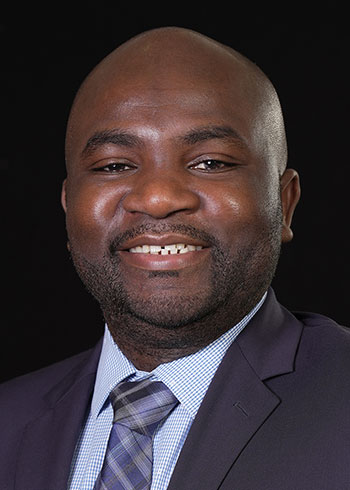 “As a corporate attorney, [I observed that] most businesses were concerned about two factors in 2023: 1) whether the Federal Reserve would be able to bring the inflation rate to the 2% generally acceptable level; and 2) whether the U.S. would be able to avoid a recession,” said business lawyer Olanrewaju (Lanre) Abiola of Prestige Law Office LLC, Milwaukee, a member of the State Bar’s Business Law Section board.
“As a corporate attorney, [I observed that] most businesses were concerned about two factors in 2023: 1) whether the Federal Reserve would be able to bring the inflation rate to the 2% generally acceptable level; and 2) whether the U.S. would be able to avoid a recession,” said business lawyer Olanrewaju (Lanre) Abiola of Prestige Law Office LLC, Milwaukee, a member of the State Bar’s Business Law Section board.
“Certainly, while the work of lowering inflation is not done, the Federal Reserve succeeded in lowering it to 3.2%. Because businesses are concerned about how the inflation rate and a possible recession would affect them, it is likely to chill the deal market – leading to layoffs, slower corporate matters, and deal volumes for law firms.
“This uncertainty will likely continue in 2024. For instance, tech layoffs, which included Facebook Meta Platforms, Google parent Alphabet, Microsoft, and Spotify, dominated 2023. In fact, downsizing went beyond the tech industry, with retailers, manufacturers, and financial sectors – [such as] Citigroup and the big four accounting firms … Deloitte, Ernst & Young, KPMG, and PricewaterhouseCoopers – announcing cuts.
“In short, while slower corporate matters and deal volumes for law firms are likely to continue, and the possibility of the U.S. going through a recession in 2024 will accelerate that, corporate matters and deal volumes will likely return to pre-pandemic levels in 2025.”
Civil Rights Law
 “Over the last three years, there has been a considerable uptick in awareness about civil rights and allegations of police and government misconduct, in light of the tragic death of George Floyd in Minneapolis and the shooting injury to Jacob Blake in Kenosha, among many well-known cases,” said Nathaniel Cade Jr., a civil rights attorney at Cade Law Group LLC, Milwaukee, and chair-elect of the State Bar’s Civil Rights & Liberties Section.
“Over the last three years, there has been a considerable uptick in awareness about civil rights and allegations of police and government misconduct, in light of the tragic death of George Floyd in Minneapolis and the shooting injury to Jacob Blake in Kenosha, among many well-known cases,” said Nathaniel Cade Jr., a civil rights attorney at Cade Law Group LLC, Milwaukee, and chair-elect of the State Bar’s Civil Rights & Liberties Section.
“But what has not changed is the strong tension between victims who seek legal redress for their injuries and rights being violated, and the desire of officials, including law enforcement, [to be] free of the second-guessing of their decisions, often rendered in the heat of the moment.
“The tension is strongest in the area of qualified immunity, which is a legal doctrine that shields government officials, including law enforcement officers, from being held personally liable for actions taken in the course of their duties unless they violate ‘clearly established’ constitutional rights. If a court determines that an official is protected by qualified immunity, it also signifies the end of the lawsuit and victims being left without recourse for their injuries.
“While designed to protect officials from frivolous lawsuits, critics argue that it often prevents actual accountability for misconduct. The debate about qualified immunity has gained traction amid growing calls for police reform, as advocates argue that the doctrine can hinder justice and hinder the ability to hold officers accountable for misconduct, particularly in cases of excessive force and civil rights violations.
“Recently, there have been discussions in Congress and some state legislatures about potential changes to the qualified immunity doctrine. Some propose narrowing its scope to ensure accountability while still safeguarding officials who act in good faith. Others argue for its outright abolition, contending that it perpetuates a culture of impunity and police misconduct. While no such discussion currently is taking place in the Wisconsin Legislature, the issue is constantly raised in federal courts, and thus the application is piecemeal.”
Criminal Law
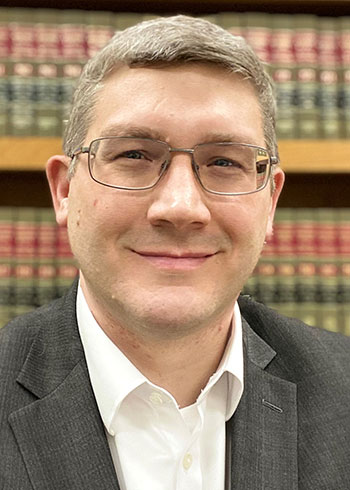 “In the coming year, criminal law practitioners can expect to see more cases exploring how constitutional protections work to keep people secure in the use of their cell phones and other personal electronics,” said Nicholas Grode, assistant district attorney in the Outagamie County District Attorney’s Office in Appleton and chair of the State Bar’s Criminal Law Section.
“In the coming year, criminal law practitioners can expect to see more cases exploring how constitutional protections work to keep people secure in the use of their cell phones and other personal electronics,” said Nicholas Grode, assistant district attorney in the Outagamie County District Attorney’s Office in Appleton and chair of the State Bar’s Criminal Law Section.
“Most criminal practitioners are well aware of the protections these devices are afforded under the Fourth Amendment, but additional protections exist under the Fifth Amendment that may provide matters of first impression for Wisconsin courts in the new year.
“The heart of this issue revolves around access to these devices. Practitioners commonly find themselves in situations where it is alleged these devices contain evidence of a crime. Even when courts agree and approve warrants to allow their search, there are times when law enforcement simply cannot access the device because of security and privacy safeguards.
“Often in these situations, law enforcement will ask a suspect to provide access to the device, but such a request implicates the Fifth Amendment and creates interesting questions for all parties on how best to proceed. This issue has been explored outside of Wisconsin, particularly in the 11th Circuit case of In re Grand Jury Subpoena Duces Tecum, 670 F.3d 1335 (11th Cir. 2011), and the Utah Supreme Court case of State v. Valdez, [No. 20210175, 2023 WL 8635197 (Utah Dec. 14, 2023)]. Look for Wisconsin to possibly address some of these questions in the new year.”
Elder and Special Needs Law
 “Protecting vulnerable populations from financial exploitation and abuse continues to be an important topic for elder and special needs advocates and attorneys. This topic affects our counseling and advising, as well as our advocacy,” said Meghan Teigen of Johnson Teigen LLC in Fitchburg and chair-elect of the State Bar’s Elder Law and Special Needs Section
“Protecting vulnerable populations from financial exploitation and abuse continues to be an important topic for elder and special needs advocates and attorneys. This topic affects our counseling and advising, as well as our advocacy,” said Meghan Teigen of Johnson Teigen LLC in Fitchburg and chair-elect of the State Bar’s Elder Law and Special Needs Section
“Proactive counseling at all stages of life should always include conversations about planning for incapacity and recognition of the importance of prudently planning to have a team of people or professionals to provide support and supervision. Exploitation through overt theft, or more covert manipulation, can happen to anyone, and spotting the signs of exploitation can be difficult.
“In addition to bad actors [who] are close to a person, financial scams are getting more sophisticated. Clients report being victimized by computer hackers stealing their passwords and identities, scammers impersonating the voices of family members claiming they are in trouble and need money, and individuals taking advantage of lonely or kind-hearted people who send money under the guise of providing help and support to a new friend.
“In terms of advocacy, elder law and special needs planning attorneys recognize that legislative protections against exploitation, though well-intentioned, must, at a minimum, be balanced with respect for individual autonomy and self-determination.
“We expect, in 2024, the issue of financial exploitation and the search for proactive protections to continue to be a trend that requires counseling, information, defenses, and advocacy. However, such work cannot disregard the individual freedoms of older adults and individuals with disabilities.”
Environmental
 “Environmental, social, and governance (ESG) continues to be a hot and complicated topic as we head into 2024, especially related to companies’ often voluntary efforts to reduce their green-house gas emissions (GHG),” said Sarah Slack, an environmental lawyer at Foley & Lardner LLP in Madison and chair of the State Bar’s Environmental Law Section.
“Environmental, social, and governance (ESG) continues to be a hot and complicated topic as we head into 2024, especially related to companies’ often voluntary efforts to reduce their green-house gas emissions (GHG),” said Sarah Slack, an environmental lawyer at Foley & Lardner LLP in Madison and chair of the State Bar’s Environmental Law Section.
“Between newly enacted state laws, including California’s Voluntary Carbon Market Disclosure Act that went into effect on Jan. 1, 2024, the much-anticipated finalization of the SEC’s Climate Disclosure Rules, which are anticipated as soon as April 2024, and the rise in greenwashing lawsuits – like the one brought against Delta Airlines for its claim that it was the world’s first carbon-neutral airline – the focus for companies looking to make claims about their GHG-emission-reduction efforts will be on transparency and accountability.
“Companies making or looking to make ESG claims or commitments related to reductions of GHG emissions should take a hard look at their accounting for existing emissions; the effectiveness, quality, and demonstrability of their reduction efforts; and what appropriate qualifications may be necessary to ensure transparency and minimize overstatement of efforts. And, as disclosure requirements start to become effective, companies should also be prepared to provide documentation and access to information to substantiate their claims and efforts, both to regulators and to their customers.”
Family Law
 “The clearest trend in family practice is the ever-increasing use of mediation and arbitration as an alternative to court trials,” said David Kowalski, a family lawyer at Kowalski Wilson & Vang LLC, Madison, and chair of the State Bar’s Family Law Section.
“The clearest trend in family practice is the ever-increasing use of mediation and arbitration as an alternative to court trials,” said David Kowalski, a family lawyer at Kowalski Wilson & Vang LLC, Madison, and chair of the State Bar’s Family Law Section.
“I see five main reasons.
1) Mediation is generally more humane and less stressful than facing the other parent directly in a courtroom.
2) The parties are empowered with more control over the outcome.
3) Parties obtain quicker results. Judges’ calendars are so full that, at least in more populated counties, trial dates are often scheduled six to eight months from the time of request.
4) It is far less costly. The process is almost always completed in one day. Because the rules of evidence are more relaxed, and formal testimony is uncommon, trial and preparation time is greatly reduced. Therefore, even though the mediator must be paid for her or his time, the overall cost is less.
5) The process is flexible. All involved agree in advance on the process, evidentiary rules, and so on. Parties also agree on whether to only arbitrate, mediate, or most commonly, first attempt mediation, which, if it fails, shifts to arbitration to guarantee a resolution.
“Given the increasingly high emotional and financial cost of litigation, use of this process will only increase. Perhaps the only concern is the general lack of retired judges available for mediation and arbitration. Hopefully, more judges will see this article and offer their services.”
Health Law
 “Regulatory investigations and enforcement actions against healthcare professionals and entities appear to be increasing heading into 2024. More regulatory agencies are communicating with one another,” said Kristen Nelson, who practices health law at Gimbel Reilly Guerin & Brown LLP in Milwaukee and is the immediate past chair of the State Bar’s Health Law Section.
“Regulatory investigations and enforcement actions against healthcare professionals and entities appear to be increasing heading into 2024. More regulatory agencies are communicating with one another,” said Kristen Nelson, who practices health law at Gimbel Reilly Guerin & Brown LLP in Milwaukee and is the immediate past chair of the State Bar’s Health Law Section.
“As a result, a healthcare professional who may have an investigation or enforcement actions with one regulatory agency may see additional penalties from another agency.
“For instance, a nurse practitioner who is alleged to have diverted controlled substances will not only lose their job, but may see consequences to their professional license, their DEA [Drug Enforcement Administration] registration, as well as face criminal prosecution, all before a violation is proven.
“And while a licensed healthcare professional facing criminal charges has a Fifth Amendment right to remain silent and not have their silence used against them, no such right exists in licensing investigation conducted by the Wisconsin Department of Safety and Professional Services (DSPS).
“In these situations, a failure to cooperate with an investigation by [the] DSPS can result in increased consequences, leaving a license holder with the difficult decision to forgo their livelihood while a criminal case is pending.
“State and federal investigations into healthcare fraud will also remain prevalent, specifically, issues related to billing for unnecessary services, billing for services not furnished, and upcoding.”
Intellectual Property Law
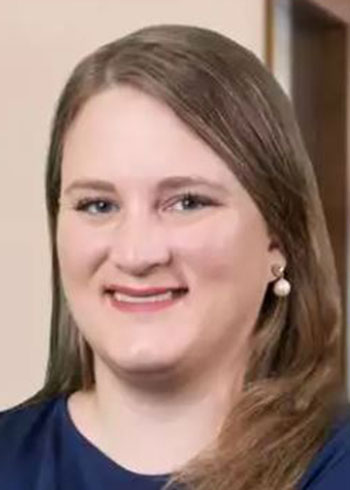 “2024 will be an exciting year for intellectual property law, as pending cases could substantially affect multiple facets of IP law,” said intellectual property (IP) lawyer Heidi Thole of Reinhart Boerner Van Deuren s.c. in Milwaukee, chair of the State Bar’s Intellectual Property and Technology Law Section.
“2024 will be an exciting year for intellectual property law, as pending cases could substantially affect multiple facets of IP law,” said intellectual property (IP) lawyer Heidi Thole of Reinhart Boerner Van Deuren s.c. in Milwaukee, chair of the State Bar’s Intellectual Property and Technology Law Section.
“For example, the U.S. Supreme Court will address whether copyright plaintiffs can recover damages for acts occurring more than three years before filing suit (Warner Chappell Music Inc. v. Sherman Nealy). The Court will also determine whether, in the case of trademarks containing criticism of a governmental official or public figure, the First Amendment trumps the Trademark Act’s restriction against registering trademarks containing a name or portrait without consent (Vidal v. Elster).
“Finally, the Federal Circuit has agreed to review a design-patent decision that increased the difficulty of securing design patents, even as design patents are becoming more valuable across various industries (LKQ Corp. v. GM Global Technology Operations).
“Artificial intelligence will also continue trending in 2024, as we continue to grapple with the question of how intellectual property rights for inventions and works created with AI assistance (or wholly generated by AI) compare to rights for human-generated inventions and works.
“We may also receive instructive guidance on whether training AI systems on images, articles, and other works (without author approval) constitutes copyright infringement.”
International Law
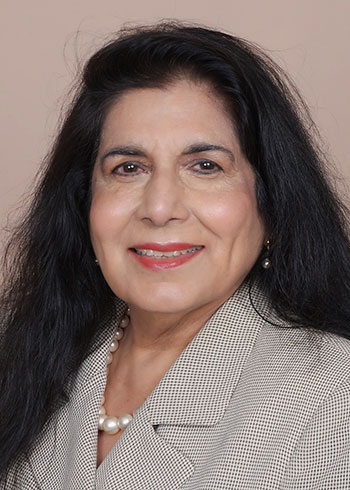 “As the global community emerged from the devastating effects of the pandemic, businesses in the global markets confronted other challenges such as inflationary pressures, which caused increasing price volatility and continued supply chain disruptions,” said Jaya Sharma of Sharma Mediation and Arbitration in Madison, chair of the State Bar’s International Practice Section. “In addition, the use of sanctions by governments following Russia’s 2022 invasion of Ukraine continued well into 2023.
“As the global community emerged from the devastating effects of the pandemic, businesses in the global markets confronted other challenges such as inflationary pressures, which caused increasing price volatility and continued supply chain disruptions,” said Jaya Sharma of Sharma Mediation and Arbitration in Madison, chair of the State Bar’s International Practice Section. “In addition, the use of sanctions by governments following Russia’s 2022 invasion of Ukraine continued well into 2023.
“Businesses sought to recoup some of their pandemic and business disruption losses through arbitration. Many of the leading international arbitral institutions reported a record caseload with most disputes arising in construction, the energy sector, transportation, and commodities.
“2023 saw the following significant trends in international arbitration:
The continued use of technology to conduct virtual arbitrations provided enhanced access to disputants for more efficient and cost-effective means of dispute resolution;
Increased use of AI technology in data management in arbitration to streamline the arbitral process;
The proliferation of AI and technology gave rise to more technology-related disputes referred to international arbitration;
Emphasis on ‘green’ arbitrations, which focused on reducing paper submissions and the mitigation of carbon footprint by fostering virtual arbitration hearings to minimize travel;
Greater awareness of environmental, social, and governance (ESG) principles and the devastating effects of climate change resulted in actions by claimants against investors and governments;
Greater emphasis on gender and equity in the selection and appointment of arbitrators, which began a few years ago, continued in 2023; and
Development in U.S. arbitral jurisprudence, which has significant legal implications for international parties in U.S.-seated arbitrations.
“The 2022 U.S. Supreme Court’s ruling in ZF Automotive US Inc. v Luxshare Ltd. foreclosed the use of 28 U.S.C. § 1782 in private commercial arbitration. That statute gives U.S. district courts authority to order discovery for use in a proceeding ‘in a foreign or international tribunal.’ The decision left open the possibility that discovery may be available in public commercial arbitration. Litigation on whether an arbitral tribunal convened under the Rules of the International Centre of Settlement of Investor Disputes constitutes a ‘foreign or international tribunal’ under the statute will continue in 2024.”
Labor and Employment Law
 “In 2024, employers should anticipate the continued expansion of worker protections,” said Bryan Symes of DA Davidson Companies in Minneapolis, a member of the State Bar’s Labor & Employment Law Section board. “The theme appears to be ‘go big or go home.’
“In 2024, employers should anticipate the continued expansion of worker protections,” said Bryan Symes of DA Davidson Companies in Minneapolis, a member of the State Bar’s Labor & Employment Law Section board. “The theme appears to be ‘go big or go home.’
“In that regard, lawmakers in Wisconsin and across the country appear to be increasingly open to initiatives designed to expand paid, job-protected leave (in some jurisdictions, paid leave available for any reason), to enhance worker mobility through limiting or prohibiting the use of post-employment restrictive covenants, to augment the range of protected categories under fair employment practices laws, and to increase pay transparency in job postings to address pay disparities.
“At the federal level, workplace agencies like the NLRB [National Labor Relations Board] and EEOC [Equal Employment Opportunities Commission] are certain to remain active in reshaping the legal landscape – including through enhanced enforcement efforts. To that end, the NLRB will apply new rules affecting union elections, joint-employer analysis, and employee handbook policies. Not to be outdone, the FTC [Federal Trade Commission] has also proposed a rule that would ban most noncompetition covenants.
“Similarly, federal workplace agencies will bolster worker protections by promoting increased interagency collaboration. For example, the NLRB and OSHA [Occupational Safety and Health Administration] plan to coordinate efforts to ‘promote safe and healthy workplaces through protecting worker voice.’ This means more information sharing, additional cross-training of staff, and increased support for OSHA’s proposed rule permitting third-party representatives (for example, organized labor) to accompany OSHA inspectors during workplace inspections.
“It remains to be seen if, and to what degree, many of these worker-friendly trends will gain traction in the Badger State. Regardless of what unfolds in 2024, employers should prepare for a wild ride.”
Litigation
 “Even though we are now a couple years out from the COVID-19 pandemic, videoconferencing continues to be widely used in litigation,” said litigator Eric Ryberg of Habush Habush & Rottier S.C. in Madison, chair of the State Bar’s Litigation Section.
“Even though we are now a couple years out from the COVID-19 pandemic, videoconferencing continues to be widely used in litigation,” said litigator Eric Ryberg of Habush Habush & Rottier S.C. in Madison, chair of the State Bar’s Litigation Section.
“Court appearances such as scheduling conferences, motion hearings, and final pretrial conferences are still regularly conducted by videoconference. While things are generally going smoothly, one area has been getting more problematic – getting the parties to agree on whether videoconferencing or in person will be the format for depositions, especially of treating physicians.
“Some treating physicians will only agree to a deposition if it is held by videoconference. Meanwhile, some defense attorneys insist on taking those important depositions in person. Wis. Stat. section 804.01(2)(d), which allows for discovery of experts, does not address the location of expert depositions. Subpoenas are an option under Wis. Stat. section 804.05(3), but one can fairly expect an agitated treating physician when choosing that course of action. I expect the courts will not look favorably when disputes arise on this issue, preferring the parties to amicably resolve them without court involvement.
“Given the widespread use of videoconferencing, I think courts will likely permit busy treating physicians to appear in that manner. In sum, do not assume you will be able to depose a treating doctor in person in 2024.”
Public Interest Law
 “The biggest trend I am seeing is the complexity of the Supplemental Security Income (SSI) asset limits,” said Kelsey Brown of Legal Action of Wisconsin Inc. in Milwaukee, chair of the State Bar’s Public Interest Law Section.
“The biggest trend I am seeing is the complexity of the Supplemental Security Income (SSI) asset limits,” said Kelsey Brown of Legal Action of Wisconsin Inc. in Milwaukee, chair of the State Bar’s Public Interest Law Section.
“The current limits have not been updated for over 30 years, leaving recipients unable to save for emergencies, retirement, and other living expenses. Right now, asset limits are $2,000 for individuals and $3,000 for couples.
“The Social Security Administration (SSA) uses a lot of [staff] to monitor asset limits. This includes verifying any help recipients receive from family and friends. Called in-kind support and maintenance (ISM), SSA employees must ask recipients detailed questions about household members and expenses to determine whether they receive support.
“Depending on their answers, recipients can have their benefits suspended – eventually terminated – if they cannot get their assets back within range. This process must be repeated every time a recipient’s circumstances change. ISM can deter support for recipients, forcing them to rely on other government assistance programs, while also discouraging recipients from saving.
“However, there is hope to end this 30-year streak with the introduction of the SSI Savings Penalty Elimination Act and the SSI Restoration Act. These two bills would, among other things, raise the asset limits to today’s market standards and account for inflation.”
Public Utilities Law
 “The replacement of lead mains and service lines, and funding those replacements, remain key water utility priorities in 2024,” said Jared Walker Smith of Boardman & Clark LLP in Madison, chair of the State Bar’s Public Utilities Section.
“The replacement of lead mains and service lines, and funding those replacements, remain key water utility priorities in 2024,” said Jared Walker Smith of Boardman & Clark LLP in Madison, chair of the State Bar’s Public Utilities Section.
“In November, the U.S. Environmental Protection Agency announced its proposed lead and copper rule improvements [LCRI], which will require most water utilities to replace all public and private lead service lines within 10 years. Wisconsin is ahead of the national curve, with many utilities already making great strides in removing lead from their systems with prior Department of Natural Resources [DNR] funding.
“However, questions remain on how communities and their water utilities can take advantage of new funding provided under the Bipartisan Infrastructure Law and distributed by the DNR under Wisconsin’s Safe Drinking Water Loan Program, including whether utility rates regulated by the Public Service Commission or municipal revenues will be used to assist in replacing private service lines.
“Additionally, the replacement of private lead service lines on private property continues to raise questions related to enforcement of mandatory replacement ordinances, property rights, and access rights. With no quick fix for infrastructure replacement, lead removal will continue to be a critical issue well past 2024.”
Sports Law
 “While it may seem like intercollegiate athletics has had a legal or regulatory development every week since the U.S. Supreme Court’s June 2021 ruling in Alston (for example, name, image, and likeness [NIL] policy and guidance, multi-time transfer restrictions, or the IRS’s tax-exempt treatment of NIL collectives), this year may bring even more seismic changes to the college sports landscape,” said sports lawyer Josh Frieser of Frieser Legal LLC, Milwaukee, a regular contributor to WisLawNOW.com (the State Bar of Wisconsin’s blog aggregator) on sports law issues.
“While it may seem like intercollegiate athletics has had a legal or regulatory development every week since the U.S. Supreme Court’s June 2021 ruling in Alston (for example, name, image, and likeness [NIL] policy and guidance, multi-time transfer restrictions, or the IRS’s tax-exempt treatment of NIL collectives), this year may bring even more seismic changes to the college sports landscape,” said sports lawyer Josh Frieser of Frieser Legal LLC, Milwaukee, a regular contributor to WisLawNOW.com (the State Bar of Wisconsin’s blog aggregator) on sports law issues.
“Both the U.S. Court of Appeals for the Third Circuit and the National Labor Relations Board are currently considering challenges to the NCAA’s amateurism model. Either the Third Circuit or the NLRB could find that college athletes (or perhaps certain groups of them, such as Division I FBS [Football Bowl Subdivision] football players) are employees under the Fair Labor Standards Act or National Labor Relations Act, respectively. Such a ruling would substantially alter the legal relationship between the ‘student-athlete’ and their university, conference, the NCAA, and any potential labor unions or athlete representatives, such as agents.
“Although the cases are pending, legislation has been introduced at both the state and federal levels to address NIL, the NCAA’s antitrust problem, and the status of college athletes as employees. While dozens of states have passed NIL laws, none of the proposed federal legislation has gained substantial traction.”
Legal Employment Trends
 “The employment outcomes for the last few law school classes were remarkable, but the market reversal we saw over the past year suggests that we were seeing the top of an employment curve that is now on its way down,” said Nikia Gray, executive director for the National Association for Law Placement (NALP) in Washington, D.C.
“The employment outcomes for the last few law school classes were remarkable, but the market reversal we saw over the past year suggests that we were seeing the top of an employment curve that is now on its way down,” said Nikia Gray, executive director for the National Association for Law Placement (NALP) in Washington, D.C.
“This is likely to result in a particularly challenging job market for the class of 2024, which is expected to be the largest graduating class we’ve seen in many years. Not only did the job market not grow enough to absorb all of these additional students, it constricted, with firms making 2% fewer job offers during the recruiting cycle for this class. As a result, it’s likely that we’ll see more of these graduates seeking jobs in industry segments outside private practice and that they may have a lower overall employment rate.
“Despite this, competition to attract and retain top talent at all levels is still strong. The recruiting cycle for law students is expected to inch even earlier in the year, with more offers being made before on-campus interview programs begin. For both entry and lateral candidates, hybrid work options will continue to be a differentiator, with research from NALP and the NALP Foundation finding significant correlation between flexibility and job satisfaction.”
Legal Profession Diversity Trends
“It is an understatement to say last year was challenging for proponents of diversity,” Gray said. “However, I remain optimistic that the industry will continue to make incremental gains in overall diversity over the next few years, particularly at the junior levels.
“Not only was the class of 2024 the most diverse class in history when it entered law school, which will translate into a highly diverse group of new attorneys joining the profession this May, but the classes of 2025 and 2026 are even more diverse. Additionally, the applicant pool for this year’s incoming fall class is highly diverse, which suggests that law schools will be successful in admitting a broadly representative class despite the U.S. Supreme Court’s decision on race-conscious admissions.
“The industry, however, has a lot of work to do to avoid backsliding as the effect of that decision plays out on the longer-term, fragile pipelines into the profession. It will be critical over the next year that both law schools and employers think broadly about their pipelines and overhaul outdated notions of what credentials result in a successful lawyer.”
Legal Marketing Trends
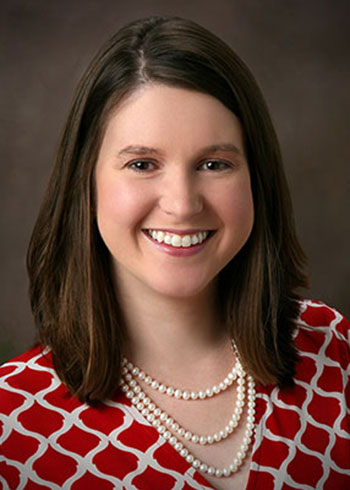 “Whether you routinely celebrate the work anniversaries of connections on LinkedIn, or have recently purchased a Stanley Quencher, social media is influencing your actions and ideas. And it’s doing the same thing to your clients,” said Emily Stever Kelchen of Kelchen Consulting in Tennessee. Kelchen is the chair of the State Bar’s Communications Committee.
“Whether you routinely celebrate the work anniversaries of connections on LinkedIn, or have recently purchased a Stanley Quencher, social media is influencing your actions and ideas. And it’s doing the same thing to your clients,” said Emily Stever Kelchen of Kelchen Consulting in Tennessee. Kelchen is the chair of the State Bar’s Communications Committee.
“Taking a step back to evaluate what social media platforms you are on and whether they are serving you well is something every lawyer and law firm should do in 2024. Make sure you are hanging out online in the same places as your ideal clients:
Investigate if and where your clients are posting online;
Try to figure out what platforms potential clients are vetting you on; and
Take a peek at what your most successful competitors are doing.
“Compare the effort you are putting into maintaining each social media account to your firm’s intake data and what it reveals about how clients heard about or evaluated you, the analytics built into each platform, and search engine results.
“The social media landscape has changed a lot over the last couple years with the rise of TikTok, the waning popularity of X (formerly Twitter), and new privacy controls that make targeted advertising a bit more challenging. Reevaluating where you are spending your time and money online is a must.”
Legal Research Trends
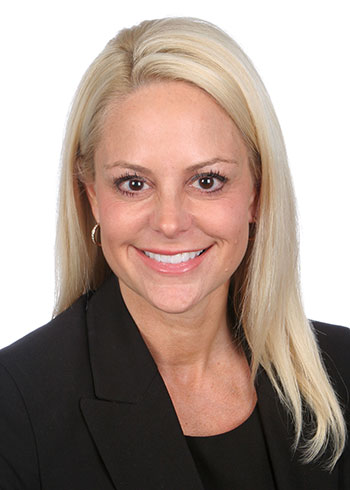 “Artificial intelligence (AI)-enabled legal research tools are now at center stage in the legal research marketplace,” said Laura Olsen, manager of research, training, and engagement at Quarles & Brady LLP in Madison and a member of the State Bar’s Communications Committee.
“Artificial intelligence (AI)-enabled legal research tools are now at center stage in the legal research marketplace,” said Laura Olsen, manager of research, training, and engagement at Quarles & Brady LLP in Madison and a member of the State Bar’s Communications Committee.
“Traditional AI and machine learning-based legal research tools analyze data, look for patterns, leverage predictive analytics to provide insights, and make research recommendations based on query histories. Generative AI legal research tools are the latest entrants to the marketplace and harness deep-learning models to generate content.
“AI-enabled research tools that tap into trusted and editorially enhanced content such as Westlaw Precision, Lexis+ AI, and Ask Practical Law AI are among the industry frontrunners. AI company acquisitions by the leading legal research vendors are helping fuel development.
“Researchers must consider ethics rules when using AI-powered legal research technologies, particularly rules relating to diligence, confidentiality, and competence, including technical competence. Some state bar associations are considering ethics opinions, guidelines, and revised rules to guide lawyers through using AI in law practice. Practitioners using AI-enabled legal research tools must thoroughly vet results, verify accuracy, authority, and currency, and check for AI hallucination.
“Artificial intelligence is bringing transformative change to legal research through time-saving efficiencies, yet AI-enabled research tools will never replace the reasoning and creativity that only the human mind can offer.”
Law Office Administration Trends
 “The initial excitement surrounding generative artificial intelligence (AI) in the legal field is now translating into tangible software platforms that legal professionals can use in their practices, said Christopher C. Shattuck, legal studies and paralegal program director at Madison College and board member of the Wisconsin Chapter of the Association of Legal Administrators.
“The initial excitement surrounding generative artificial intelligence (AI) in the legal field is now translating into tangible software platforms that legal professionals can use in their practices, said Christopher C. Shattuck, legal studies and paralegal program director at Madison College and board member of the Wisconsin Chapter of the Association of Legal Administrators.
“LexisNexis and Westlaw have launched legal research and brief writing tools. Microsoft Copilot, set to become widely available this year, will enable firms to use AI for various tasks such as document automation, presentation creation, spreadsheet analysis, email responses, and summarizing virtual meeting action items.
“Emerging AI tools will also streamline processes like discovery (LegalMation), document review (Logikcull), and trial preparation (using large language models for evidence analysis and mock jury experiences). If you’re skeptical about AI’s impact, watch as it transforms legal practices in the coming year, assisting legal professionals at every step.”
Joe Forward, the State Bar of Wisconsin’s communications director and editor of Wisconsin Lawyer, coordinated this article.
Endnotes
1 Molly Bohannon, Lawyer Used ChatGPT in Court – and Cited Fake Cases. A Judge is Considering Sanctions, Forbes.com (June 8, 2023).
2 Sara Merken, New York lawyers sanctioned for using fake ChatGPT cases in legal brief, Reuters.com (June 26, 2023).
» Cite this article: 97 Wis. Law. 14-22 (February 2024).
